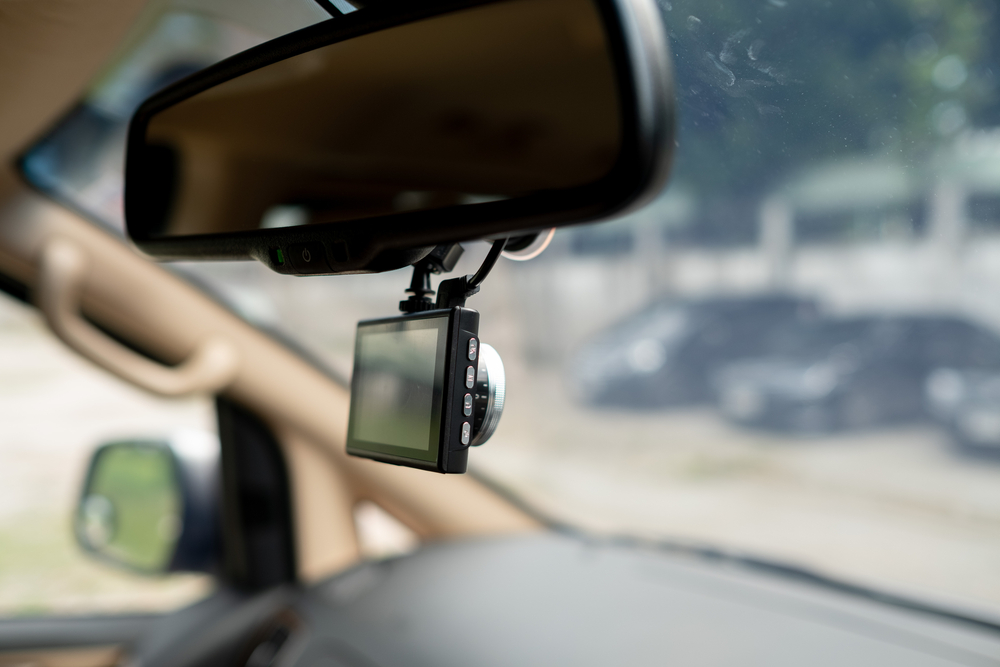
Unfortunately, accidents on the road are not uncommon in the bustling city of Fort Lauderdale. Car accidents can result in personal injury cases. These cases can cause individuals to face medical expenses, lost income, and physical and emotional pain. In such situations, dashcam evidence plays a crucial role in establishing liability and seeking compensation.
One valuable piece of technology that can make a significant impact on your car accident claim is the dashcam.
Can Dashcam Video Be Admissible Evidence In Florida?
Everyone in Florida must give their consent for the use of their recorded dashcam footage. The “two-party consent” rule forms the basis for this. Courts usually allow dashcam footage on public roads, as long as it doesn’t record private conversations. Here’s a breakdown:
- Two-Party Consent Rule: Everyone in a conversation must consent to recording, including dashcam footage that captures sound.
- Public Roads: Courts typically consider dashcam footage recordings on public roads or highways as admissible in court proceedings.
- Limitation on Recording Audio: To maintain credibility, it is crucial that the dashcam footage refrains from recording private conversations. Focus on capturing the public space’s visuals, not the private conversations inside the vehicle.
Functionality Of Dashcams
A “dashcam,” short for “dashboard-mounted video camera,” captures video footage directly from the dashboard. You affix a device to a designated spot on your vehicle, capturing video footage, often accompanied by audio.
- Overview: Dashcams typically point forward and can also attach to face the rear window if permitted by the law.
- Activation: You can manually activate dashcams or configure them to automatically start when the vehicle is in operation. They have limited space, so you need to save videos manually to avoid deleting them.
- Storage: Dashcams typically have a limited storage capacity, usually enough for approximately 6 hours of footage. Unless the owner manually saves and stores it, the device will automatically overwrite older recordings.
- Legal Compliance: Users should be aware of state laws, ensure unobstructed views, and maintain clear video quality.
The Comprehensive Role Of Dashcams in Accident Documentation
Dashcams play a pivotal role in accident documentation by providing video evidence. In a car accident, these devices are like reliable witnesses. They record important details that help understand how the accident occurred and who is responsible. The evidence gathered includes:
- Road Perspective: Offering a unique view of how the road appeared from inside the vehicle.
- Weather and Traffic Conditions: Documenting poor weather conditions and the state of traffic at the time of the incident.
- Location of Traffic Signs: Clearly showcasing the placement of traffic signs along the route.
- Traffic Light Status: Recording the real-time status of traffic lights in the surrounding area.
- Interior Details: Capturing aspects of the car’s interior, providing additional context to the circumstances.
Establishing Credibility Of Dashcam Footage
Credibility dashcam evidence requires careful attention to detail, transparent editing, and legal knowledge of Florida’s laws.
Ensuring Date and Time Stamps
- Verify that the dashcam records date and time information, embedded into the video file.
- Utilize the dashcam file to pinpoint the precise moment when it captures the footage.
Minimizing Edits
- Avoid unnecessary edits to the footage, preserving its original content.
- If edits are essential, entrust the task to your attorney, ensuring transparent documentation.
Testimony and Affidavits
- Consider providing testimony or affidavits from yourself or witnesses.
- Affirm the accuracy and credibility of the dashcam footage through firsthand accounts.
Consulting a Personal Injury Attorney
- Seek guidance from a personal injury attorney well-versed in Florida’s laws.
- They can use their expertise to enhance the effectiveness of dashcam evidence in your claim.
The Value of Dashcam Evidence In Affirming Driver Behaviors
Dashcam videos are useful for proving a driver’s actions, especially in cases where blame and carelessness matter. Here are instances where dashcam footage proves useful:
- Confirming Reckless Driving: If someone claims that a car drove dangerously and changed lanes before a crash, dashcam footage can support their claim. The footage must display the car swerving before the accident.
- Validating Hit-and-Run Incidents: If a person denies involvement in a hit-and-run case, dashcam footage can provide strong proof. The footage shows their car and license plate immediately after the crash. The video can effectively establish fault and support the victim’s claim.
How Can Dashcam Evidence Footage Be A Double-Edged Sword?
Stay Calm and Respectful
- Remain composed and avoid confrontations or admissions of the fault immediately after the accident.
- Acknowledge that the dashcam can record your behavior, both actions and words.
Adhere to Traffic Laws
- Ensure your actions in the dashcam footage align with responsible and lawful driving behavior.
- Violating traffic rules on camera may undermine the strength of your claim.
Limit Conversation
- Exercise caution during conversations while the dashcam rolls, even if it typically doesn’t capture audio.
- Keep discussions focused on essential matters to prevent confusion.
Seek Medical Attention
- Promptly seek medical attention if injured, dispelling any notion of downplaying injuries.
- Timely medical care helps establish a clear link between injuries and the accident.
Consult a Personal Injury Attorney
- Reach out to a personal injury attorney for a free case.
- An experienced car accident lawyer can help with dashcam footage, police reports, and other parts of your claim.
Contact Steinger, Greene & Feiner Today
Dashcam footage can greatly impact a car accident case. However, it is crucial to seek assistance from a skilled personal injury lawyer. They will know how to effectively utilize this evidence. Reach out to Steinger, Greene & Feiner for a free consultation.
